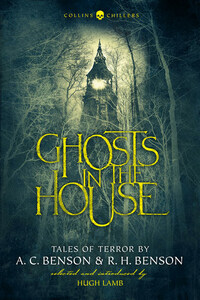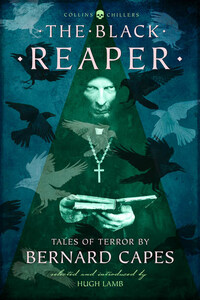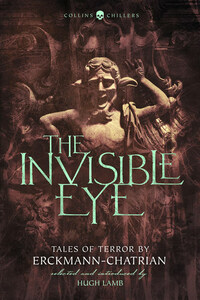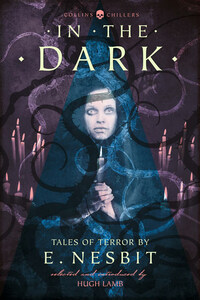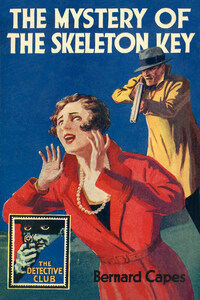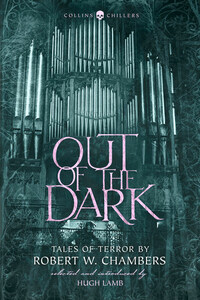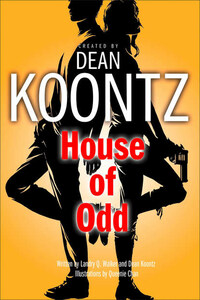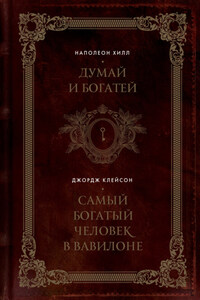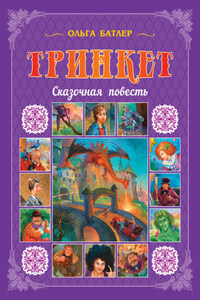HarperCollinsPublishers
1 London Bridge Street
London SE1 9GF
www.harpercollins.co.uk
Collins Chillers edition published 2018
First published in Great Britain by Ash-Tree Press 1996
Selection, introduction and notes © Hugh Lamb 2018
Cover design by Mike Topping © HarperCollinsPublishers Ltd 2018
Cover photographs © Shutterstock.com
A catalogue copy of this book is available from the British Library.
This novel is entirely a work of fiction. The names, characters and incidents portrayed in it are the work of the author’s imagination. Any resemblance to actual persons, living or dead, events or localities is entirely coincidental.
All rights reserved under International and Pan-American Copyright Conventions. By payment of the required fees, you have been granted the non-exclusive, non-transferable right to access and read the text of this e-book on screen. No part of this text may be reproduced, transmitted, down-loaded, decompiled, reverse engineered, or stored in or introduced into any information storage and retrieval system, in any form or by any means, whether electronic or mechanical, now known or hereinafter invented, without the express written permission of HarperCollins.
Source ISBN: 9780008249038
Ebook Edition © October 2018 ISBN: 9780008249045
Version: 2018-09-06
No other family has approached the Bensons for sheer volume of printed words. Between them, Arthur Christopher Benson (1862–1925), Edward Frederic Benson (1867–1940) and Robert Hugh Benson (1871–1914) published over one hundred and fifty books, and their unpublished works include Arthur’s four-million word diary. Were that to be published in its entirety, it would occupy thirty-six volumes the size of this one.
Ghost stories formed the merest fraction of their output, yet they produced some of the finest in the genre, Fred becoming one of the best ghost story writers Britain has produced. But it was not without good cause that these three very different brothers – teacher, socialite and priest – found themselves producing literary terrors. Horror for the Bensons really began at home.
Arthur, Fred and Hugh were the surviving sons of Edward White Benson, one of Queen Victoria’s favourite Archbishops of Canterbury. Another son, Martin, died in his teens. The whole family was, to put it mildly, odd. To all appearances the epitome of an upper-class Victorian family, their history reads like a TV soap opera – a child bride, a ruthless patriarch, lesbianism, homosexuality, child death, religious mania and homicidal lunacy.
Edward Benson married Mary Sidgwick when she was eighteen (he’d had his eye on her since she was eleven). They produced six children, two of whom died young. The surviving daughter, Maggie, was to become totally insane and attempt to murder her mother, who was embroiled in a lesbian affair with one of Maggie’s friends.
The father became an ogre to his children, who spent much time in their copious autobiographical works trying to allay his ghost. None of them married and the Benson line died out with them.
With this gloriously dotty background, it is amazing that the brothers managed to keep both feet on the ground, though Arthur and Hugh had some alarming one-legged patches.
As Fred’s life is so well known, and his ghost stories very familiar and not included here, I do not propose to dwell on his career any more, but turn instead to his brothers, who are less familiar and still unjustly neglected.
Arthur became a schoolmaster, teaching first at Eton in 1892 and moving to Cambridge in 1903, where he rose to become Master of Magdalene College. He seems to have attracted some curious circumstances in his life. His main literary fame was founded on a string of books consisting of somewhat scholarly homilies, full of sweetness and light, which brought him a huge audience. One of his admiring readers was an anonymous American woman, wealthy in her own right, who had married an equally rich man. Touched by Benson’s description of the penury of Magdalene College, in 1915 she offered him, out of the blue, a large sum of money to improve the college. Understandably taken aback, Arthur eventually agreed, provided he was a trustee only, and over the next few years the American lady’s largesse enabled him to turn Magdalene into one of Cambridge’s leading colleges. Strange as it may seem, Benson and the American lady never met.
Arthur suffered from depression, often for years at a time, and this affliction was made doubly crippling for him as it was such depression that heralded his sister Maggie’s descent into madness (happily, not the case with Arthur). In one of his books, Fred recounts how Arthur, in the grip of depression, thought he had locked his servants into the house and that they would be starving to death. He urged Fred to investigate, but it was a baseless alarm: he had made provision for them and then forgotten all about it.
